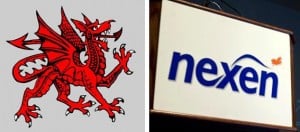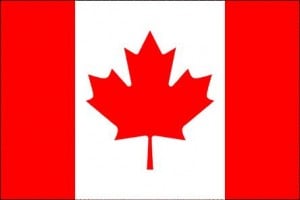Several months ago, I posted an article asking the question Can Defkalion Survive the Greek Crisis? To summarize, I explored the obstacles that Defkalion Green Technologies faced starting a commercial enterprise in a country in the midst of economic turmoil and rising social unrest. This would certainly be problematic for any new enterprise, but especially so for a company seeking to commercialize an entirely new technology. Aside from the technical and logistical challenges, I also raised the question of whether Defkalion would be able to attract sufficient investment in a chaotic economic, social and political environment. If investors are fond anything, aside from making a profit, it is stability. Investment involves enough risk in and of itself, and this risk need not be exacerbated by economic and social turmoil.
Apparently this line of thought was also contemplated by Defkalion management, as on July 18, 2012 company representative George Xanthoula sent out an e-mail outlining Defkalion’s plans to leave Greece and set up operations elsewhere. The reasons given for this move were very similar to those mentioned above. Australia, Canada and Switzerland were mentioned as possible sites of relocation.
At the National Instruments-sponsored NIWeek in August, Defkalion CEO Alexander Xanthoulis announced that there would be offices in both Vancouver, British Columbia, Canada and Zurich, Switzerland, with the Vancouver office serving as the primary base of operations. It was not made clear why Canada was chosen as Defkalion’s new base of operations, but Mr. Xanthoulis is described in company literature as being a Greek-Canadian, so his roots in that country may have been a factor. In August, a company representative stated the Vancouver office would be open this month, although no specific date was given.
While waiting for official commencement of operations in Canada, Defkalion has continued to do testing in Greece on their Hyperion cold fusion reactor. In a message on the Defkalion discussion forum, the company announced it had conducted two official test runs on its reactor from September 5th to September 14th. These tests were reportedly conducted in Greece on its R5 prototype, and testing is scheduled to begin soon on its R6 pre-industrial reactor at the Vancouver facility. In that same message, a Defkalion represented wrote: “An official announcement from our company within the next weeks will inform you of the peer-reviewed journals where the results of all these tests so far will be published by the independent testers.”

If indeed Defkalion testing has been submitted for peer-review, and these results will soon appear in peer-reviewed journals, this would be a very positive development. Failure to release independent testing results, after public announcements in February of this year raised expectation of such, led many to question the validity of Defkalion claims about its Hyperion reactor. However, reports that have filtered out about the testing results have served to buoy confidence in the Hyperion in some quarters. Those who are privy to information that most of us are not, have much less doubt about the Hyperion and Defkalion’s claims regarding it. Although, even among this group, there remain some questions regarding the device’s stability. The company gave presentations at both NIWeek and ICCF-17 but they did not provide any new information, save for the location where their base of operations was being moved. Hopefully, the coming weeks and publication of independent testing results in peer-reviewed literature will answer many lingering questions.
Yet, as Defkalion settles into its new surroundings, they have more to be concerned about than providing definitive proof to the faithful and silencing critics and detractors. Certainly they have escaped the chaos in Greece but Canada has its own native dangers with witch company officials need to contend. First of all, Western Canada is home to one of the fiercest predators in the wild, the grizzly bear. Company employees would be advised to keep trash can lids firmly secured and their facilities locked at night. Vancouver may be a bustling metropolis, but it is an oasis in the midst of a vast wilderness. Grizzly bears do not respect no trespassing signs or city limits. There is a reason the city named its NBA basketball team after them.

The second resident of Western Canada that Defkalion must concern itself with is the powerful and influential Canadian oil industry. Canada is the sixth largest oil producing country in the world, and is the primary source of oil imports into the United States. The bulk of Canadian oil exploration and production is in the Western Canadian provinces of Alberta and British Columbia.
Defkalion may also soon have to contend with Chinese oil interests. CNNOC, a state-owned Chinese oil company, is currently in negotiations with the Canadian government to buy the Canadian oil company Nexen for a reported price of $15.1 billion. If approved by the government, this purchase would be the largest purchase of a Canadian energy asset by a Chinese company, and the largest single purchase by a Chinese company of a foreign asset. This deal is expected to be approved by the Canadian government, despite concerns amongst some Canadians in regard to allowing a state-owned Chinese enterprise to own such a large stake in their domestic oil industry.
A cold fusion optimist might conclude that some in the Canadian government are aware of the arrival of Defkalion on their soil and the promise the Hyperion offers for the future of energy. As a result, officials may be obliged to allow the Chinese to spend billions of dollars on an asset whose value may be greatly diminished in the not too distant future. Many others may simply conclude that this deal is about oil, cold hard cash and maybe even political influence, but not related to cold fusion or Defkalion in any way.
Defkalion may have flown into Canada under the radar because the results of independent testing of the Hyperion have not yet been made public. Perhaps that was part of the rationale for delaying publication. Jed Rothwell, cold fusion historian and administrator of the lenr-canr.org cold fusion library, wrote several months ago that the results of independent testing were being kept under wraps “for good reason.” I think avoiding the scrutiny of the oil industry in Canada, at least for a time, would qualify as a good reason.
If the independent verification of Defkalion claims are soon published in peer-reviewed scientific journals, Defkalion’s warm Vancouver welcome may turn as cold as a Canadian winter. By the same token, if Defkalion continues to make bold claims without the appropriate corroborating evidence, the Canadian government may scrutinize Defkalion a little more closely then the Greek government did while the company was in Greece.
When Defkalion broke with Andrea Rossi in August of last year, they publicly warned Rossi about the perils of “going it alone.” Ironically, a year later, they may be seen as doing just that. They are in a new country, with new laws, sharing a province with a powerful and prosperous industry that could be made irrelevant by their technology. Yet, Defkalion management has already proven adept at navigating difficult waters in the last year. They managed to engineer their own cold fusion cell after their abrupt break with Andrea Rossi left them without the core technology, the loss of their chief scientist as a result of that break, and escape from an imploding nation…and those are just the difficulties that have been made public. If one adds to the above that the Hyperion is reportedly the most robust cold fusion reactor currently being developed, this company has a lot working in its favor…I mean our favor.
I look forward to independent confirmation of Hyperion performance being made available to the public.



My understanding is that Defkalion plans, not to manufacture the device themselves, but to license the manufacturing. While the main hurtle is independent confirmation, a strong secondary consideration is the lack of a patient protecting their technology, and more importantly, proving that it is uniquely theirs. I am pro-LENR, but the question of patient protection will be a bigger hurtle than proof of concept (when it comes to licensees laying out the necessary capital to not only Defkalion, but for the manufacturing plant).
Frankly, I’m not sure why Canada is any better than Greece, because what they are selling could be done using just a website.
If my memory is good, they claim having applied 6 patent, with one on powder .
They don’t need to wait for the patent to be granted to be protected.
If their reactor can be proved working, even USPTO will have to surrender.
The only emergency is to apply a patent as soon as possible, and keep all secret before.
(thanks to David French for his clear explanations).
British Columbia is uniquely different from Alberta with its power wielding oil and coal industries. For one most of its power comes from Hydro and two traditionally mining and forestry have been the dominant revenue generators. Although energy production and transportation have been growing they are not dominant and I think overall B.C. will benefit from a LENR powered world. Even thou B.C. and Alberta are side by side they are like night & day in regards to politics and culture.
True, there are certainly differences between Alberta and BC, but those differences are small when compared to the differences between Canada and Greece. Among them is the presence and influence of the energy industry. Greece does not have any export energy industry, while in Canada energy exports are a very important of the economy. with production based primarily in Western Canada. Yes, most of this activity is centered in Alberta but not solely, and, as you point out energy production in BC is growing. Even if coal is currently a larger part of the BC economy than oil, I cannot imagine that industry would be more tolerant of a potential competitor than the oil industry centered In a neighboring province. The bottom line is that DGT is more likely to face opposition from the existing energy paradigm in Western Canada than it ever did in Greece.
Energy is a cost competitive industry. I do not buy all of these conspiracy theories that are constantly being thrown about by many in the LENR web communities. The world’s economic progress in the last century has been fueled by cheap hydrocarbons. Unfortunately environmental damages have not been able to be factored into these costs. If LENR can become a cheaper source of energy than hydrocarbons then the world will benefit and we will move onto the next problem that will be created, probably a population explosion of an exponential magnatutde due to food production in northern and south climates growing in cost competitive green houses where currently heating costs make them prohibitive. Too much of anything is never a good thing and energy itself has made humans too dominate on this small planet.
If by population explosion you mean real growth, forget it because increase of wealth induce demographic transition, this mean reduction of fecundity, often below replacement minimum rate.
otherwise, yes it might be immigration, re-balancing population density on the planet, so we can occupy colder climates…
by the way you speak like the recurrent Malthusians, who always failed in predicting anything. Most of the claims on Malthusians, like population bomb, are simply lies, if not long time debunked errors.
LENR will reduce pollution, environmental impact on many activities, and most of the world (smaller) population will be able to afford a cleaner planet, unlike today, where only the wealthy can…
A number of sources including Graham Zabel, London School of Economics have successfully argued a more developed and reasonable line of thought: “Cheap and abundant fossil fuels have been a necessary precondition for the past century’s population growth. And while not all countries benefit directly from the consumption of high quality energy supplies, most countries benefit from the impact of high energy societies on low energy societies.”
His is not the only study that provides positive correlations with global population growth to oil & natural gas development in the last two centuries.
You sound like you are seriously embedded with some dusty old academic theories and or delusion. Reading too much Ayn Rand perhaps?
There is little doubt that LENR will reduce environmental damage caused by current energy use but beyond that your predictions have little basis in fact or reality!
Brad:
Greece is very unsuitable for industry production. Greece have no industry tradition. There are no local suppliers and subcontractors that can support and form a industry base around a production of a LENR-reactor. Supplies and exports have to go over a infrastructure that are randomly closed due to strikes and unrests.
Defkalion had plans in 2011 to start a very large production of Rossis eCat. If production plans are still alive, moving seems as the right thing to do.
I lived in Vancouver for 18 years. There are no grizzly bears anywhere near Vancouver. Really uninformed reporting. We dont live in Igloos either.
Really? That is the whole thing you got out of this article? The use of the grizzly bear is a bit tongue in cheek, and a way to point out that Defkalion is not in Greece any more and their new environment offers many challenges. It was not meant to imply that grizzly bears roamed the streets or maintain flats in the city. But to claim there are no grizzlies near the city is patently false. There is in fact a conversation area on Grouse Mountain where grizzly bears can be found. I visited Vancouver for a week some years back and during my stay there were news report of a GB in Stanley Park. Lastly, as pointed out in the article, some in the city feel enough affinity with the animal to have once named a professional sports team after them.
There were grizzly bears kept at the Stanley park Aquarium until maybe 15 years ago.I assure you that no one in the entire GVRD worries about their garbage attracting bears. So a whole paragraph on bears reflects slipshod fact finding Unless Defkalion moved to Grouse Mountain. I can only assume the rest of the article is of the same quality.Its not about the bears, its about LENR being too important for this kind of reporting.
I assure you I take LENR very seriously, although apparently not as seriously as you take yourself. Once again, the point of this article is not about grizzly bears. I mentioned them merely as a REPRESENTATION of the potential perils that Defkalion faces in their new environment. I did take some license in order to prove a point, but not as much as you continue to insist upon.
If you take this subject seriously as you claim, why don’t get out and about and attempt to find where Defkalion has settled in Vancouver, and see if you can get some up-to-date information about their current status. Company officials may be happy to know they have an advocate as a neighbor. That would serve the interests of the thousands of other readers out there more than your continued focus on the habitat of the grizzly bear in 21st Century Vancouver.
Ben, I live in Los Angeles, a desert in southern California. There are bears at the outskirts of the megalopolis, where the sprawl meets the mountains.
Apparently, Don lives in high-rises. Where city meets country, there’s always wildlife.
The representation is lost on him.
Yes on all counts Ruby.
Vancouver secondary school wants to visit Defkalion
http://www.lenrforum.eu/viewtopic.php?t=657&p=2507
The final sacking of Constantinople sent many people fleeing to the far reaches of the world with their books and their civilized ways. On a small scale today the people of Greece may be fleeing to other more peaceful climes. It was that sacking that led ultimately to the Renaissance. Maybe the world will inherit something from Defkalion’s fleeing to warmer economic climes.
Very good point. I appreciate the historical context as well.